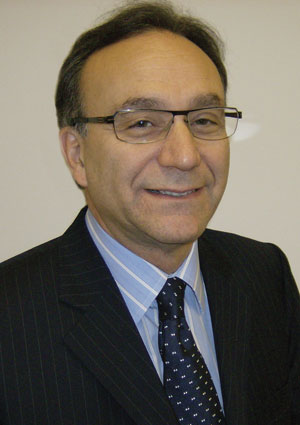The Divisional Court, saying a defendant motion to remove opposition counsel the day before mediation “smacks of gamesmanship,” reinstated a Toronto lawyer as solicitor of record on a case involving his elderly aunt who broken a hip in a slip and fall.

“In view of the timing of this motion, on the eve of mediation involving an 85-year-old plaintiff, and the undisputed facts of this case, we have concerns about the motivation for bringing this motion,” wrote Divisional Court Justices John Brockenshire, Janet Wilson, and Andromache Karakatsanis.
“We agree with the appellant’s submission that this was a tactical motion that brought into question the professional integrity of counsel,” they wrote in fixing costs for the aborted mediation and other fees at $27,500.
Harvey Consky says it was vital for the court to restore his professional reputation by striking the lower court decision. He says the Law Society of Upper Canada opened an investigation into his conduct based on the initial ruling, but that file will now be closed.
“I did feel terrible with the original decision,” says Consky. “I was devastated by that decision, because it questioned my professional integrity.”
Koskie Minsky LLP lawyer Alfred Esterbauer, who represented Consky, said the ruling will clear up possible confusion about the application of the Rules of Professional Conduct.
“The Divisional Court’s decision in overturning the original decision will be of assistance to the profession in clarifying what the law should be in terms of lawyers’ communications to non-parties,” says Esterbauer.
Todd McCarthy of Flaherty Dow Elliott & McCarthy LLP, who represents Famous Players Inc. on the case, says the defence felt an obligation to seek an order removing Consky from the case.
“We believed it was our duty to bring it to the court,” said McCarthy. “The fact that Justice Allen saw it one way and the Divisional Court saw it another way I think reflects that reasonable persons, lawyers, and judges looking at this situation could see it differently. We respect the difference of opinion, but this was not designed to be tactical.”
The Divisional Court ruling addressed Consky’s actions in
Consky v. Famous Players Inc. The matter involves his aunt, Molly Consky, who suffered a broken hip after a slip and fall in 2004 while entering the auditorium of a Toronto film theatre.
The elderly Consky sued for damages against Famous Players Inc., which at the time occupied the theatre. Third- and fourth-party claims also exist on the matter.
On April 7, Superior Court Justice Beth Allen ordered Consky removed as solicitor of record for his aunt on the case, citing his contacting corporate counsel of a non-party as “imprudent and improper” and a breach of the Rules of Professional Conduct.
In an affidavit, Consky stated that in January 2008 he noticed the theatre where the slip and fall happened had changed its name. He said he got in touch with the senior vice president and general counsel to Cineplex Entertainment to clarify ownership of the theatre, wrote Allen.
While the Cineplex counsel was not a client of defendant’s law firm, Allen ruled that wasn’t enough “to overcome the broad scope of the threshold developed by the courts in exercising their discretion to remove a solicitor from the record.”
Allen added, “I find it was imprudent and improper for Consky to contact the theatre under circumstances in which he had information before the contact that there was a lawyer/client relationship between the defendant’s law firm and the theatre on the premises.
He did not find out until after the contact . . . about the sale of Famous Players’ interest to Cineplex Entertainment. Making that contact was risky and not the appropriate means for Consky to obtain the information he sought.”
The judge later wrote, “By my decision, I am not concluding Consky’s actions had an improper motive or were in bad faith or were intended to do harm.”
“I find Consky should have been discouraged by the Rules of Professional Conduct from making the contact with Fitzgerald without the consent of the defendant’s solicitors, under circumstances in which it was not clear what the relationship was between the defendant Famous Players Inc. (CBS Holdings Inc.), its solicitors and Cineplex Entertainment,” wrote Allen.
But the Divisional Court judges on Oct. 14 found that Allen “mischaracterized the proper legal test for removing a solicitor of record.
“She misconstrued uncontested facts and was clearly wrong in her conclusion that the Rules of Professional Conduct had application to the uncontested facts of the case.”
Specifically, the judges found that Consky had clarified with the Cineplex corporate counsel before speaking with her that her company was not a client of the defendant’s law firm, that the company was not aligned with the theatre owner, and that Cineplex had not taken on liabilities or obligations of the theatre owner.
Further, wrote the judges, the two lawyers did not discuss any “confidential or prejudicial information,” during the telephone call.
“There was no conduct by Mr. Consky when considered objectively that brings into question public confidence in the justice system,” wrote the judges. Meanwhile, the trial in the case is slated for June 2009.

 “In view of the timing of this motion, on the eve of mediation involving an 85-year-old plaintiff, and the undisputed facts of this case, we have concerns about the motivation for bringing this motion,” wrote Divisional Court Justices John Brockenshire, Janet Wilson, and Andromache Karakatsanis.
“In view of the timing of this motion, on the eve of mediation involving an 85-year-old plaintiff, and the undisputed facts of this case, we have concerns about the motivation for bringing this motion,” wrote Divisional Court Justices John Brockenshire, Janet Wilson, and Andromache Karakatsanis.